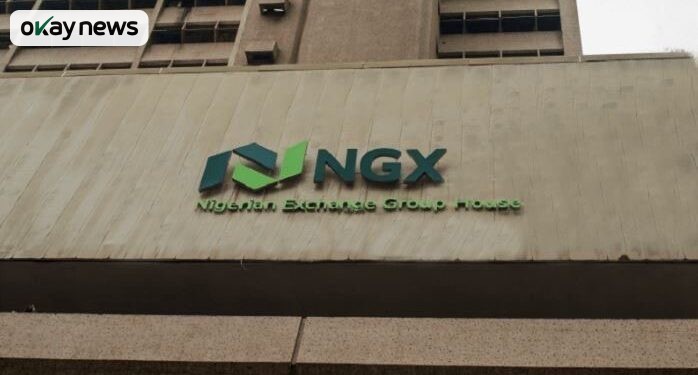Nigeria’s trade sector contributed N40.71 trillion to Gross Domestic Product (GDP) in the first half of 2025, marking one of the strongest performances recorded since the country intensified non-oil export expansion and energy-sector reforms supporting Nigeria trade growth.
Okay News reports that new data from the National Bureau of Statistics (NBS) showed trade activities increased sharply from N14.59 trillion in the first quarter to N26.12 trillion in the second quarter—a 78.96% quarter-on-quarter rise that analysts say reflects expanding cross-border commerce and energy-related exports.
Analysts told Okay News that the upward trend in Nigeria trade growth is also linked to Nigeria’s revived petroleum value chain, including higher output of Liquefied Natural Gas (LNG), Compressed Natural Gas (CNG), and refined petroleum products from new and existing refineries.
According to the NBS, Nigeria recorded N43.35 trillion in total exports and N30.71 trillion in imports in H1 2025, producing a trade surplus of N12.64 trillion—a key indicator of strengthening Nigeria trade growth on the external side.
President of the Lagos Chamber of Commerce and Industry (LCCI), Gabriel Idahosa, said the figures mirror ongoing improvements in non-oil exports, which rose from N1.43 trillion in 2020 to N6.21 trillion in H1 2025. He noted that rising gas output from domestic oil producers has further accelerated Nigeria trade growth.
However, Idahosa warned that the positive trade numbers have not yet translated into gains for Nigeria’s manufacturing base. He cited weak purchasing power, high production costs, and unsold inventory as major barriers slowing industrial recovery.
Okay News reports that the real GDP growth rate for trade slipped from 1.78% in Q1 to 1.29% in Q2, prompting concerns about the sector’s underlying momentum. But former President of the Chartered Institute of Bankers of Nigeria, Prof. Segun Ajibola, told Okay News the decline reflects normal seasonal shifts rather than a structural downturn.
Ajibola added that long-term outcomes will depend on whether Nigeria expands exports or relies more heavily on imports, warning that import-driven Nigeria trade growth could weaken domestic industry.
President of the Association of Small Business Owners of Nigeria (ASBON), Femi Egbesola, described the figures as a “warning sign,” arguing that trade is rising because manufacturing is slowing, leading to more imported goods replacing local production.
Stakeholders across the real sector urged the government to strengthen industrial policy, expand support for manufacturing, and sustain export-focused incentives to ensure that rising Nigeria trade growth translates into broader economic development and job creation.







